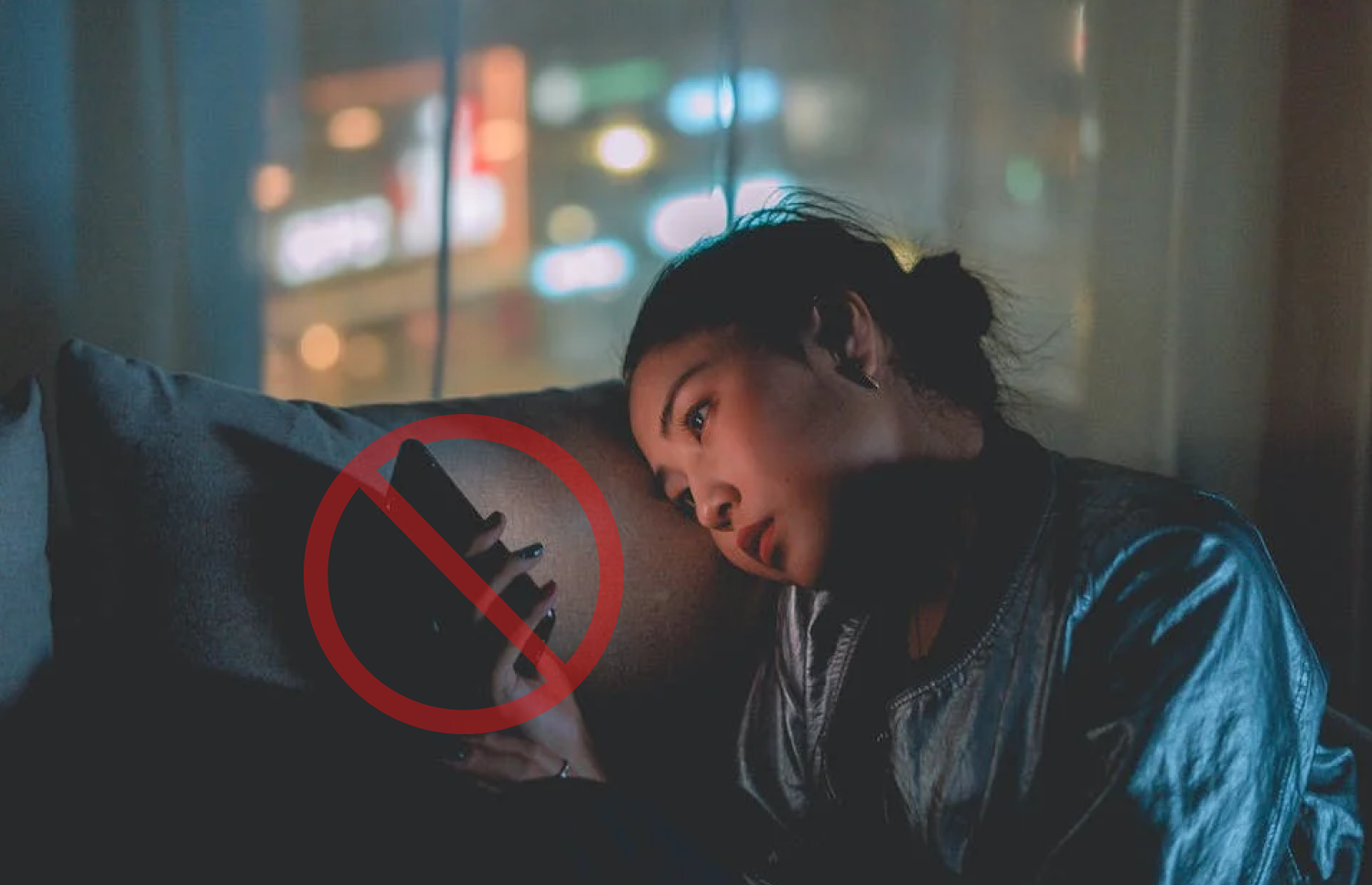Is your evening screen time affecting your sleep? Many of us are unknowingly exposed to blue light through common devices, which could be the culprit behind disrupted sleep patterns.

What Is Blue Light?
Blue light is emitted by many of our daily-used electronic devices like smartphones, computers, and televisions. It’s also found in energy-efficient LED and fluorescent lights.
Why Does Blue Light Affect Sleep?
- Melatonin Suppression: Blue light can reduce melatonin production, a vital hormone that regulates our sleep-wake cycle. Elevated melatonin levels in the evening signal our body that it’s bedtime. Blue light exposure can disrupt this natural process.
- Delayed Sleep Onset: Too much screen time, especially in the evening, can push back the time it takes you to fall asleep.
- Compromised Sleep Quality: Even if you do sleep post blue-light exposure, it might not be the deep, restorative sleep your body needs.
Effective Strategies to Combat Blue Light Exposure:
- Use Built-in Blue Light Filters: Modern devices often come with settings that reduce screen blue light emission, especially useful in the evenings.
- Blue Light-Blocking Glasses: If you’re an evening worker, these glasses can be a lifesaver, filtering out disruptive blue light.
- Opt for Warm, Dim Lighting: Before bedtime, soft lighting can set the mood for a good night’s sleep.
- Limit Pre-bed Screen Time: Try replacing screens with calming activities an hour before sleep, such as reading.
- Choose Warm Lighting Options: Redesign your living spaces with warmer light sources instead of white or blue LEDs.
- Stick to a Sleep Schedule: Regular sleep timings can reinforce your body’s circadian rhythm, aiding faster sleep onset.
Minimizing blue light exposure, especially during evenings, can play a significant role in enhancing your sleep quality, especially if you often find sleep elusive.
Learn more about sleep and blue light interactions here.
Sources:
- Fonken LK, Nelson RJ. Illuminating the deleterious effects of light at night. F1000 Med Rep. 2011.
- Chellappa SL. Individual differences in light sensitivity affect sleep and circadian rhythms. Sleep. 2021.
- Owen, T. Light Hacking | TEDxGullLake.
